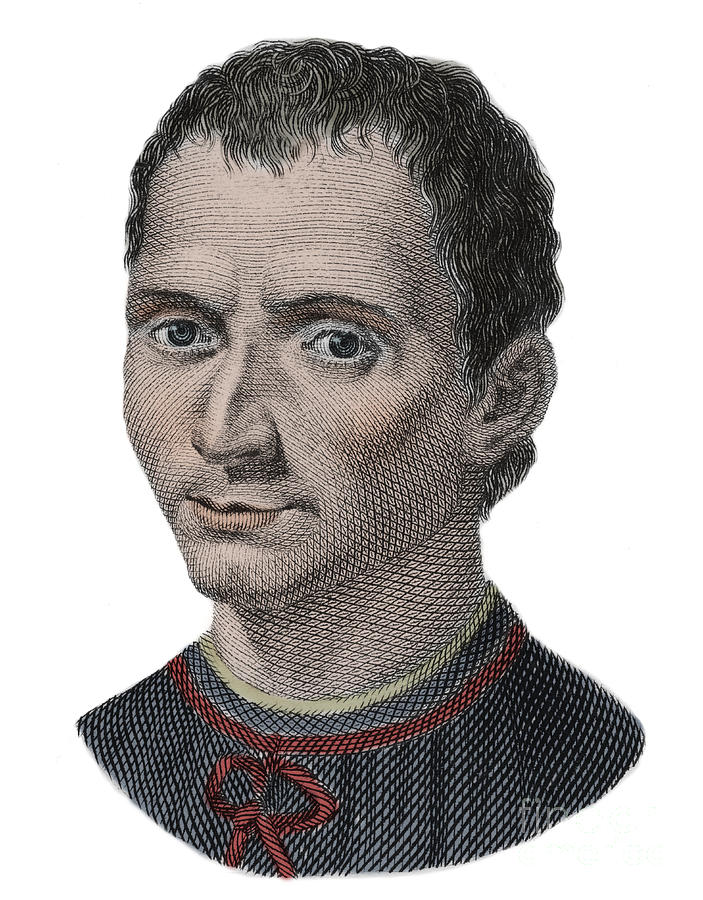In 1532, Niccolo Machiavelli’s book, “The Prince,” was published in Italy. While today it is considered one of the most famous and influential political treatises of all time, at the time of its publication it was looked down on as a work of evil and immorality. At that time, Italy was a country deeply divided, and its political scene was characterized by chaos, corruption, and constant wars between rival city-states. Machiavelli, a diplomat and political philosopher, had a front-row seat to all of it, and he wrote “The Prince” as a guide for rulers on how to gain (and maintain) political power in a volatile environment. Little did he know how influential his work would become!

The book is divided into 26 chapters, each of which focuses on a specific aspect of leadership. They run the gamut… some examples are qualities of a good ruler, how to gain power, how to handle friends and enemies, and the importance of military strength. Machiavelli’s advice to rulers is often ruthless and sometimes amoral, as he emphasizes the importance of using any means necessary to achieve one’s goals. One of the most controversial aspects of “The Prince” is Machiavelli’s advocacy of deception and cruelty. He argues that a ruler must be willing to lie, cheat… even kill in order to maintain power. He famously wrote that “it is better to be feared than loved,” and he advises rulers to use fear as a tool to control their subjects. He also argues that a ruler should not be bound by traditional notions of morality, and defended his beliefs by arguing that these qualities were necessary for survival in a world where political power was constantly being contested.
One of the key themes of “The Prince” is the importance of appearing to be good… rather than actually being good. Machiavelli believed that rulers should focus on maintaining a positive public image, even if it meant sacrificing their own principles. He argues that people are easily deceived by appearances, and that a ruler who appears to be virtuous and just will be more successful in the long run than one who actually is virtuous and just. He also argues for the use of force and violence in politics. Machiavelli believed that a ruler should always be willing to use force to achieve their goals, and that a reputation for cruelty and violence could actually be an asset in certain situations. As stated, he argued that it was better to be feared than loved, because fear is a more reliable motivator than love. Machiavelli believed that the world of politics was a ruthless game, and that only the strongest and most cunning players would succeed. These rather stark ideas were shocking to many of Machiavelli’s contemporaries, most of whom had been deeply influenced by Christian morality and classical ideals of virtue and honor. The book was severely criticized as a work of evil and immorality, and it was even banned by the Catholic Church! (Then again… what work hasn’t been, at some point or another?)
What people often don’t know is that Machiavelli never saw “The Prince” published in his lifetime. He wrote “The Prince” in 1513, during Italy’s political turmoil and while acting as a diplomat and advisor to the Florentine government. However, when he finally presented his manuscript to the Medici family (the rulers of Florence at the time), they were far from impressed. The Medici had recently come to power and were keen to present themselves as benevolent rulers guided by Christian morality. Machiavelli’s book, which advocated the use of deception and cruelty in politics, was seen as a direct challenge to this image.

*
As a result, the Medici refused to publish “The Prince” and even had Machiavelli arrested and tortured on invented charges of conspiracy. Machiavelli was eventually released, but he was banished from Florence and forced to retire to his estate outside the city. It was during this period of exile that Machiavelli wrote others of his most famous works, including “Discourses on Livy” and “The Art of War.” Unfortunately, Machiavelli died in 1527, without ever seeing “The Prince” published.
Despite its controversial nature, “The Prince” was widely read and had a significant impact on political thought. It was particularly influential in the development of modern political science, as it introduced the idea of studying politics as a science rather than a moral philosophy. Machiavelli’s emphasis on the practical aspects of politics, such as the use of force and the manipulation of public opinion, has been a major influence on modern political theory and practice. In addition to its impact on political science, “The Prince” also had a significant impact on literature and popular culture. The book has been referenced in countless works of fiction, and Machiavelli’s own name has become synonymous with qualities like cunning and deceit. The term “Machiavellian” is often used to describe politicians or other individuals who are willing to do whatever it takes to achieve their goals, regardless of the moral implications. What a reputation!

